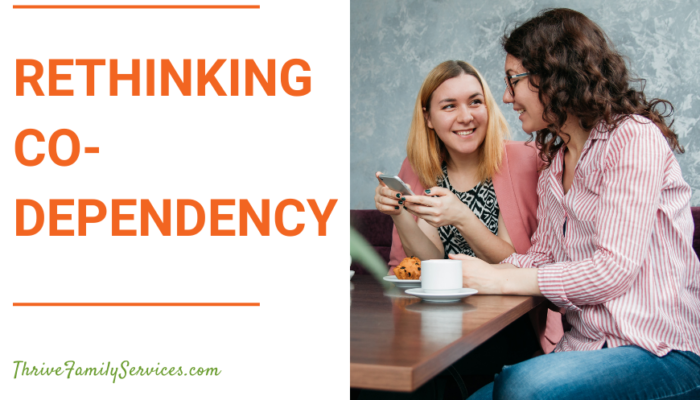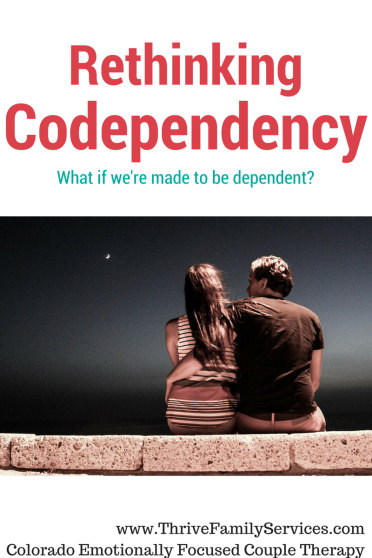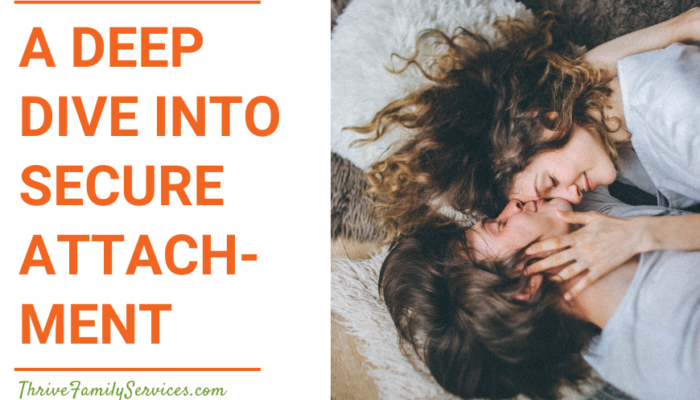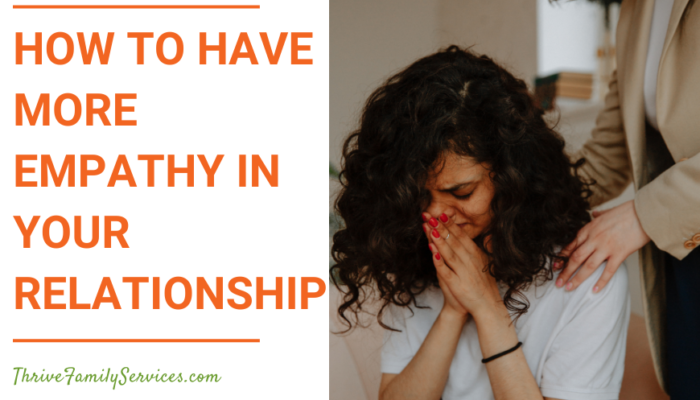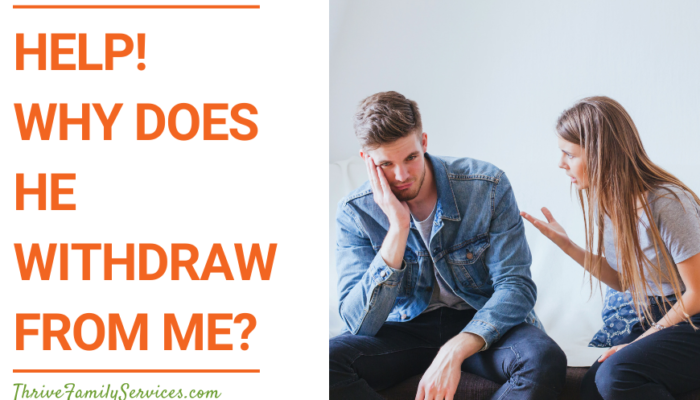Codependency
People overuse and misuse the term codependency all the time. They say things like:
“I’m so codependent. I rely on her for so much.”
“It’s codependent to ask for what I need…he should know.”
“I need reassurance about our relationship, how codependent!”
This may sound controversial, but there really is no such thing as codependency.
What is Codependency?
Codependency was an idea that originally came from the Alcoholics Anonymous community to help people make sense of the havoc that can happen when a person loves someone who is addicted.
When someone chooses alcohol, drugs, gambling, or sex over their loved ones, they are essentially forming a powerful bond with that substance or behavior.
Loved ones can feel very afraid, and try desperately to reconnect with their partner.
Sometimes, the partner of an addict can go to extremes of denying their own needs to try to save the relationship or get their partner help.
Codependency was a term invented to describe this painful process for those who love someone addicted.
It was meant to try to help those people find a path to some sense of healing in spite of loving an addict. It was meant to be a reminder not to stop loving and taking care of yourself when your loved one is an addict.
Codependency was not meant to be a dirty, misused word. But, it is.
This instinct to try to help, reach, and connect with loved ones is hard-wired into us. It is a good and healthy instinct that makes biological sense.
In fact, there is growing research that it is an addict’s connection with loved ones that may be the most effective path to sobriety and making long term changes.
Also, the strongest and the healthiest human beings are actually those who can and do form close, secure bonds with those they love. Securely attached people live longer, have fewer health issues, have more successful careers, and experience deeper happiness.
Codependency does not mean needy, clingy or reliant
To be dependent on someone else in our culture is supposedly a shameful thing. We are encouraged to be independent and self-sufficient above all else. We hear things like:
“You have to love yourself before you can be in a relationship.”
“Don’t trust anyone but yourself.”
“You need to have more of your own interests. You’re too dependent on each other.”
“You’re never going to attract a man or woman if you need them.”
If you are somehow reliant on your partner, you will likely be judged as codependent. Our society would say you are too needy or not taking good enough care of yourself.
Ineffective Dependence
Dr. Sue Johnson, researcher and master Couples Therapist once said:
“There is no such thing as codependency,
there is only effective and ineffective dependency.”
If you are ineffectively dependent, you might reach out to your partner in ways that don’t work.
In other words, you have a communication issue, not a codependency issue.
For example, if you feel fearful about her commitment to the relationship, you might be controlling of her whereabouts or constantly ask if she’s cheating. Or, if you feel unsure of his love for you, you might repeatedly ask his approval of your appearance, or nag him to help with the chores more as a sign of his love.
Generally speaking, there is ineffective dependence if your attempts to reach out to your partner result in the opposite effect: anger instead of reassurance, withdrawing instead of closeness, or your partner working longer instead of making your relationship the priority.
Couples also show signs of ineffective dependency where, for example, one partner appears to be highly anxious or clingy and the other one seems to have no needs at all.
If you are ineffectively dependent upon each other, your relationship will be insecure and unstable.
Facts about Healthy Dependence
For those of you who are hesitant to embrace effective dependency as a positive, worthy skill, here are the facts:
- We depend on each other (whether or not we like it or not) for survival
- We depend on each other because we are wired for connection
- The need to connect with other people is biologically wired into our brains. We don’t function well in isolation (think of inmates in solitary confinement – some say it is the worst torture)
- We all long for love, care, and reassurance our whole lives
- We are not codependent, we are social mammals who function best in secure relationships with others.
What inaccurate messages did you get about Dependence?
If you don’t long for care and comfort, perhaps you got some inaccurate messages about what it means to love and be close as you grew up.
Ask yourself: “What messages did I get from my past relationships about being dependent on others?” “Did I have to disown and forget about my needs and strive for independence?”
Are you still questioning that effective dependence is a good thing? If so, consider:
“How uncomfortable or scary is it for me to share my feelings or to ask for love, care, and comfort?
If you are not comfortable asking loved ones for what you need, or it feels scary, chances are you may not have been shown how to be effectively dependent on your loved ones.
You may struggle with:
Knowing what your needs are. This is a possible sign that you disowned your needs as a result of not having your needs met as a child (possibly due to addiction, or a lack of emotional responsiveness from a parent).
OR
Being afraid of depending on others. Does it feel too scary, or feels too vulnerable to ask?
The good news is that we don’t have to stay disconnected from our needs and afraid of reaching out to loved ones. Our brains are changeable. Counseling can help you break out of those past experiences.
Effective Dependence takes Courage
Imagine asking your partner for those needs that maybe you have never asked anybody for. If that seems scary, wouldn’t you be a brave, courageous person if you were to ask anyway?
Effective dependency is not a sign of weakness, instead it is a sign of courage. It takes courage to show someone our vulnerable feelings and needs in a soft way (not a critical way).
Effective Dependence leads to…more Independence???
Without a doubt, independence can be a positive trait. When you are independent, it means you are effective at getting things done. You may try lots of new things and acquire new skills. You may be effective at doing things solo and have accomplished a great deal by your own efforts. However, independence does not mean you are isolated or lonely.
That is the beauty of effective dependence—when we have strong and resilient relationships, it is easier for us to go out in the world, explore, and accomplish things.
Couples Therapy can help you have an Effectively Dependent Relationship
As an Emotionally Focused Couples Therapist, we don’t strive to make individuals in a couple more independent or less codependent. We assist couples to become effectively dependent on one another.
Share this blog post with your partner, so that the two of you can talk about effective dependency. What comes up when you think about effective dependence? Are you able to stay engaged in the conversation, or does one of you getting defensive or blaming?
If you need any help having that conversation, schedule a session today.
Emotionally Focused Couple Therapy through Thrive Couple & Family Counseling is available in Greenwood Village with our healthy dependence and couples therapy specialists. You can call anytime, 303-513-8975, X1 or schedule online now: Schedule Appointment
Don’t miss the next post for couples. We’ll send great articles to you monthly.
This post was written by Marta Kem, LMFT, a guest blogger for Thrive Couple & Family Counseling Services. Marta provides couples counseling in Westminster, Colorado.

